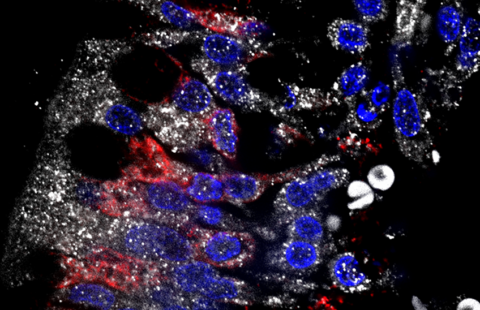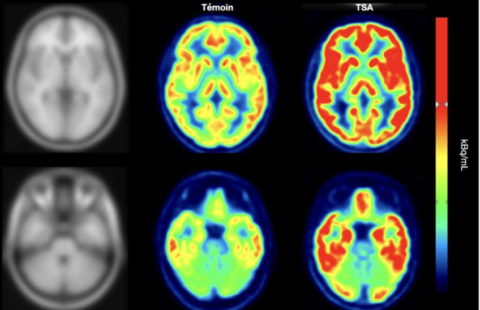
© Fotolia
Omega-3 fatty acids are crucial for the brain. Deficiency in these acids can lead to depressive mood. A new study led by Inserm and Inra researchers from Unit 901, “Mediterranean Institute of Neurobiology” (Inserm/Université d’Aix-Marseille) and UMR 1256, “Nutrition and Integrated Neurobiology” (Inra/Université de Bordeaux) reveals the mechanisms of disease that develop in adult mice on a low omega-3 diet since adolescence. It also demonstrates therapeutic approaches. The results have been published in The Journal of Neuroscience.
The rapid growth of western societies has been associated with significant dietary changes. The western diet is low in omega-3 essential fatty acids, which are found in large quantities in oily fish such as salmon as well as in chia seeds, nuts, and soy. This type of diet is a risk factor for mental health disorders such as depression and stress. It is important therefore to gain a better understanding of the mechanisms linking imbalanced diet to mental health disorders.
An Inserm team based at Marseille’s Mediterranean Institute of Neurobiology, in collaboration with an Inra team from Bordeaux, has developed a mouse model of omega-3 deficiency lasting from adolescence into adulthood. The researchers observed that introducing this low omega-3 diet from adolescence onward reduces the level of fatty acids in both the prefrontal cortex (which is involved in complex cognitive functions such as decision-making, executive control, and reasoning) and in the nucleus accumbens (which is involved in the reward system and the regulation of emotions), resulting in anxious behaviors and reduced cognitive function in adulthood.
The researchers then investigated the mechanisms underlying these results, and discovered that two primary forms of neuronal learning (in the synapses, the communication zones between neurons) are altered in the prefrontal cortex and the nucleus accumbens in omega-3-deficientmice.
With a view to developing innovative therapeutic solutions, the scientists showed that two methods were effective in completely restoring both the brain function and the emotional and cognitive behavior of omega-3-deficient adult mice. “We simply had to enhance the capacity of mGlu5 (the receptor for glutamate, the most important neurotransmitter in the central nervous system) in the neurons in order to re-establish communication, or inhibit the degradation of the main cannabinoid naturally secreted by the brain, which controls synaptic memory,” explained Olivier Manzoni and Sophie Layé, the researchers who led the study.
These results suggest that nutrition is a key environmental factor that influences brain function and behavior until adulthood, long after the end of the perinatal period. This study identifies nutritional risk factors for neuropsychiatric disorders, and points toward new therapeutic options for behavioral disorders associated with omega-3 deficiency.
These contents could be interesting :
- INSERM U901, Marseille 13009, France.
- INMED, Marseille, France.
- Université de Aix-Marseille, UMR S901, France
- INRA, Nutrition et Neurobiologie Intégrée, UMR 1286, 33076 Bordeaux, France.
- Université de Bordeaux, France.

